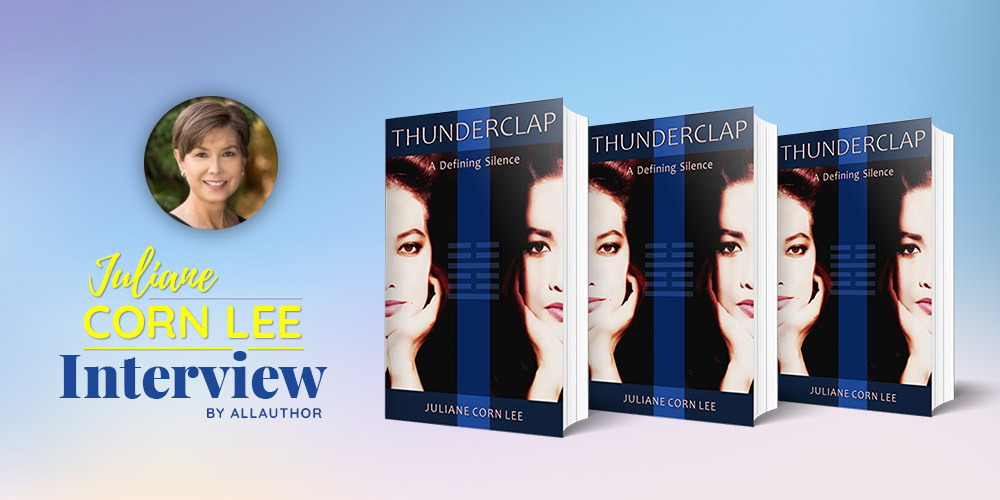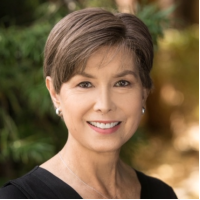Tell us a little bit about your hometown and your life growing up.
I was born and raised on the island of Guam, in the West Pacific. My parents, six siblings and I, along with a large extended family, lived in our family compound which was known throughout the island as “The Pagoda”. The 24,000 square foot home was a perfect haven for our sheltered childhood. Not surprisingly, the childhood memories I chronicled in “Thunderclap” mainly occurs within the confines of our home.
What made you decide to begin a career in patient advocacy?
I began a career in patient advocacy after my own diagnoses. In 1988, at the age of twenty-six, I suffered a massive stroke and was diagnosed with acute leukemia. I subsequently had a bone marrow transplant. “Thunderclap” was published on a major milestone year for me as a survivor: At that point, I was thirty-years post treatment.
Why did you choose to earn a master’s degree in psychology?
I’ve always had a knack for being a good listener—the one others turned to for advice and support. After suffering a stroke, I learned that stroke typically occurs in the older population, sixty-five years or older. Because I wanted to meet other patients my age, my physical therapist urged me to organize and facilitate my own young adults’ stroke support group that I could hold at the facility’s rehab department. The experience renewed my interest in the field of psychology, earning my master’s degree a few years later.
How has been your experience of working at voluntary health organizations?
When I started my career, peers often shared that they made a lot of money but they didn’t like their jobs. My experience is dramatically different. Although I don’t make a lot of money, I love what I do. I work with local cancer-accredited hospitals to provide support and information to patients and their families. My work is meaningful and reminds me each day that I am exactly where I should be.
What challenges did you face to get your first book, "Thunderclap" published?
Before I fell ill, college term papers and the like were a challenge for me. But the illness changed everything. In fact, I was compelled to tell my story and put it in writing. The writing process was arduous and “Thunderclap” took years to complete—but I persisted.
What was an early experience where you learned that language had power?
My mother was a great storyteller. Tales of her childhood growing in Japanese-occupied Manila were powerful. I knew that beyond sharing her story, she was also processing on some level the traumas she experienced as a young girl. Thus the healing powers in our stories.
As a writer, do you try more to be original or to deliver to readers what they want?
A little of both. Growing up in a family of storytellers, in my view good storytelling is an art form. However, during the writing process my editor guided me to “show” not “tell” my story. Descriptive prose was a challenge, but again I persisted.
What was the most difficult things about giving the readers an up close and personal view through your eyes and memories in your memoir?
Indeed, memoirs are a personal view through the eyes and memories of an author. However, memories are tricky because they are subjective. When I began writing, I had to qualm my concerns about how my family would react to the content. To not dilute my writings, mainly friends or professional proofreaders reviewed my drafts.
In what ways do you wish to inspire your readers with your book "Thunderclap"?
My hope is that my story will serve as inspiration. It is possible to survive catastrophic loss and not only survive but to move on and thrive. The publication of my book is the most remarkable part of my journey.
What is one weird writing trick you do that helps you?
When I began writing, a friend—another aspiring author—gave me a small ceramic figurine. The figurine is of a woman seated with her mouth ajar and is closely surrounded by little children. She’s called the “storyteller”, my friend said. I placed the figurine by my laptop and I looked at it whenever I felt overwhelmed by the idea that I was actually writing a book for publication (which is an inherently overwhelming task). It reminded me that I was simply telling my story, just as my mother had.
Which is the next book you are working on? Is it another memoir?
I don’t have anything definite in mind, but I am currently mulling over an idea, which in my experience is the preliminary phase of the writing process. There will definitely be more to follow on this.
What are your thoughts on AllAuthor? Is this a website you see yourself using for sometime even in the future?
AllAuthor is a great resource for an indie author like me—I just renewed my annual subscription! My AllAuthor staff contact is professional and responsive, which is always a winning combination. Indispensable membership benefits include Book promotion on Twitter & Weekly Mockup Banners, which I simply share on my online promotions. Also, the Magic Tool lets me easily create amazing 3D book mockups that I share on social media. AllAuthor provides me with the tools to address the challenging marketing side that comes with publication.



